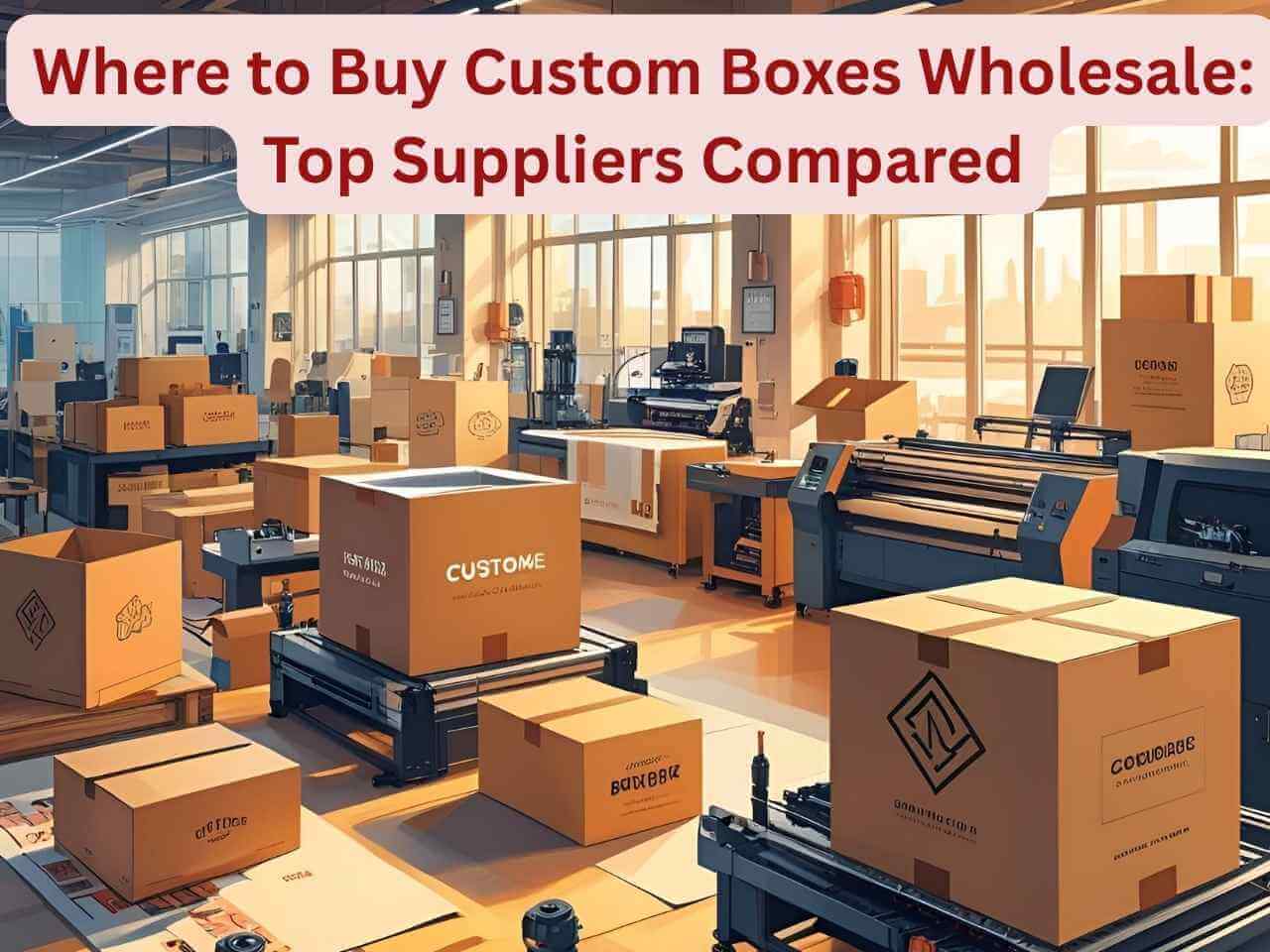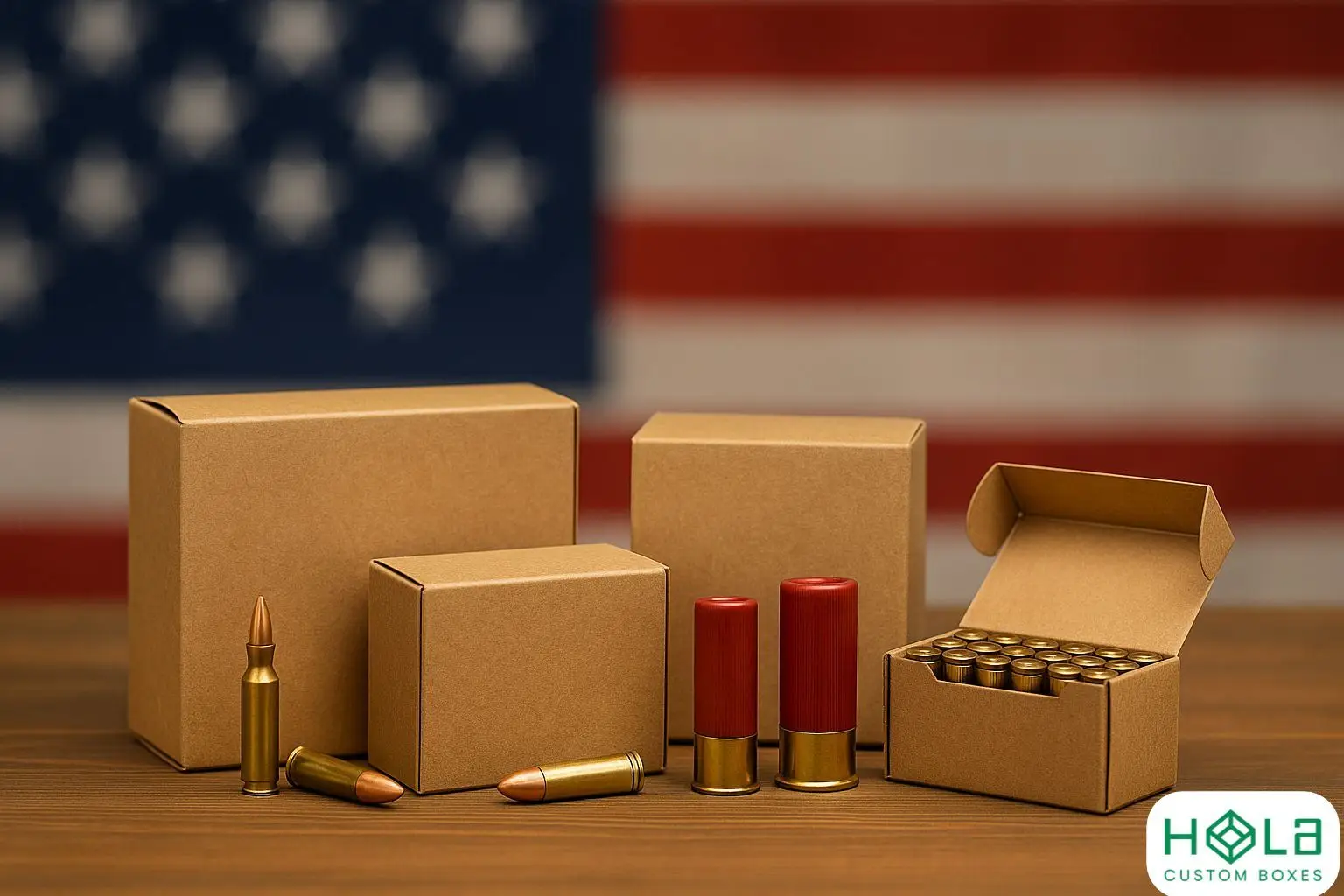Where to Buy Custom Boxes Wholesale: Top Suppliers Compared
2025-09-21 12:17:56
When sourcing custom boxes wholesale, consider suppliers across key regions with distinct advantages. Chinese manufacturers like Jewelrypackbox offer cost benefits for high volumes, U.S. suppliers provide quick domestic shipping, European vendors excel in sustainable options, and Southeast Asian facilities balance price with precision. Evaluate potential partners based on manufacturing capabilities, material quality, MOQs, and turnaround times. Your ideal supplier will align with your specific box requirements, customization needs, and budget parameters.
Main Points
- China leads in folding cartons and rigid boxes, with suppliers like Jewelrypackbox offering extensive customization options.
- U.S. manufacturers provide fast domestic shipping for corrugated solutions with shorter lead times than international suppliers.
- European suppliers specialize in eco-friendly packaging materials and innovative sustainable designs for environmentally conscious brands.
- Southeast Asian manufacturing hubs, particularly in Shenzhen, offer multilingual support and flexible minimum order quantities.
- Indian suppliers combine competitive pricing with skilled craftsmanship, making them suitable for budget-conscious businesses requiring quality boxes.
What Makes a Quality Custom Box Supplier in 2025
While the packaging industry continues to evolve at an unprecedented pace, identifying a superior custom box supplier in 2025 requires evaluation across multiple critical dimensions.
The hallmarks of excellence include robust quality assurance protocols that deliver near-zero defect rates and premium materials meeting stringent industry standards.
You'll need suppliers implementing advanced manufacturing technologies with thorough environmental commitments—utilizing recyclable materials and minimizing waste.
Leading suppliers now differentiate themselves through extensive customization capabilities, offering varied sizes and specialty options with flexible minimum orders. These customization options allow businesses to create packaging solutions with personalized graphics that strengthen brand identity and recognition.
Your ideal partner combines technical expertise with responsive customer service, ensuring regulatory compliance while maintaining supplier reliability throughout seasonal demand fluctuations.
Subscription-friendly custom merch boxes scale well wholesale.
Top Wholesale Box Suppliers for Businesses of All Sizes
Five distinct regional hubs dominate the global custom box wholesale market, each offering unique advantages for businesses seeking packaging solutions.
China leads with technological advancements in folding cartons and rigid boxes, with manufacturers like Jewelrypackbox specializing in luxury custom packaging for high-end jewelry brands with over 15 years of experience, while India delivers craftsmanship at competitive rates.
U.S. suppliers excel in corrugated solutions with faster domestic shipping.
Custom box trends favor European manufacturers specializing in eco-friendly materials and innovative designs for luxury brands.
Southeast Asian hubs, particularly in China's Shenzhen region, combine supplier innovations with multilingual support and flexible MOQs—ideal for businesses requiring scalable production from small batches to enterprise-level orders.
Eco-conscious buyers bulk-order eco-friendly boxes.
Key Factors to Consider When Selecting a Box Manufacturer

Selecting the ideal box manufacturer requires a systematic evaluation of multiple critical factors that directly impact your product presentation, supply chain efficiency, and bottom line.
Assess their industry experience and technical capabilities for your specific packaging needs. Examine their customization options regarding materials, sizes, and finishing techniques. Consider working with companies that offer custom printed packaging boxes to enhance your branding efforts.
Prioritize manufacturers with robust quality control systems and high-grade raw materials. Consider their production technology and how it affects your supply chain timeline.
Compare manufacturers based on their error rates to ensure consistent quality and minimize costly product recalls. Evaluate their material sustainability practices and certifications. Finally, analyze their logistical capabilities and customer support infrastructure to guarantee seamless implementation of your packaging strategy.
Retailers streamline assortments with retail packaging boxes.
Understanding Custom Box Pricing and Cost Variables
Custom packaging costs represent a multifaceted calculation influenced by numerous interconnected variables that determine your final investment.
Box dimensions directly impact material consumption—larger sizes increase expenses proportionally while standard dimensions benefit from production efficiencies. Additionally, custom sizes and materials can be tailored to meet diverse needs, affecting overall costs.
Structural complexity markedly affects custom box pricing; simple RSCs cost less than intricate die-cut designs with specialized features.
Material selection creates substantial cost variance, with multi-wall construction commanding premium prices over single-wall alternatives. Eco-friendly materials like Kraft and E-flute can offer both cost-effectiveness and sustainability.
Printing specifications and finishing treatments introduce additional cost variables. Premium customization options like embossing and foil significantly elevate manufacturing costs while enhancing visual appeal.
High-volume orders consistently reduce per-unit pricing through economies of scale, while small batches incur disproportionate setup fees. Customization options also play a role in pricing, as unique branding requirements can lead to increased production costs.
Understanding these interrelated factors helps you anticipate and optimize packaging expenditures.
Premium suppliers ship custom rigid boxes in bulk too.
Comparing Shipping Timeframes Among Leading Suppliers
When evaluating wholesale custom box suppliers, shipping timeframes emerge as a critical operational factor that can greatly impact your inventory planning and customer fulfillment capabilities.
Standard production typically ranges from 2-3 business days for in-stock sizes to 7-9 days for custom orders, with industry averages extending to 5-14 days.
Order fulfillment timelines vary greatly across suppliers, with complex customizations requiring additional production time.
For efficient shipping speed comparisons, consider available delivery methods: UPS Ground, local pickup options, or LTL shipping for orders exceeding 500 lbs. Some suppliers offer faster production time of 4-6 business days for standard orders compared to industry averages.
Supplier communication transparency directly influences order tracking and expedited shipping possibilities, making early planning essential during peak periods.
Eco-Friendly Box Options From Wholesale Providers
As environmental consciousness continues to shape consumer preferences, eco-friendly box options from wholesale providers represent a strategic investment for businesses seeking sustainable packaging solutions.
Leading suppliers utilize biodegradable materials like Kraft paper and corrugated cardboard, complemented by soy-based inks and plant-based adhesives.
Modern eco-packaging combines renewable Kraft paper with plant-derived adhesives, establishing a fully sustainable supply chain.
Your sustainable packaging choices now extend to innovative materials including mushroom pulp and bamboo fiber.
Bulk purchasing greatly reduces per-unit costs while maintaining eco design integrity.
With 36% of consumers preferring eco-conscious packaging, these boxes offer dual benefits: environmental impact reduction and brand loyalty enhancement.
Most providers deliver customization options with free design support, balancing sustainability with distinctive branding opportunities.
Custom Design Capabilities and Printing Technologies
The advanced printing technologies and extensive design capabilities offered by wholesale custom box suppliers represent critical differentiators in today's competitive packaging market.
Most providers utilize digital printing for short runs and quick turnarounds, while offset printing employs CMYK and PMS color systems for high-volume orders requiring precise color matching.
When evaluating custom design options, you'll find suppliers offering complete size and shape customization, professional design assistance, and specialized finishing techniques including embossing, foil stamping, and spot UV.
These enhancements elevate brand presentation while maintaining print durability.
Consider requesting samples before bulk ordering to verify print quality and dimensional accuracy.
How to Navigate the Ordering Process for Wholesale Boxes
Ordering custom wholesale boxes involves a systematic approach that transforms your packaging concept into physical reality.
Begin by submitting detailed product dimensions and quantities through supplier order forms. Specify box type and material requirements to receive accurate quotes.
Maintain consistent supplier communication throughout design submission, requesting samples to verify quality before finalizing your order.
Submit artwork in required formats and obtain formal design approval before production begins.
Track your order's progress using provided systems and confirm shipping details.
Understanding production lead times—ranging from days to twelve weeks—allows for proper inventory planning and seamless reordering processes.
